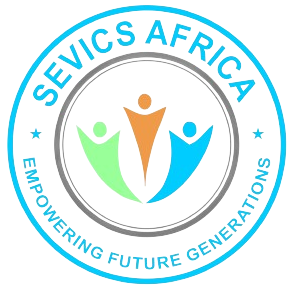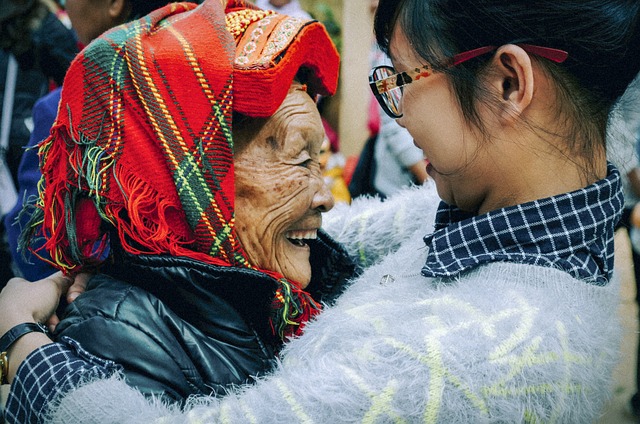Volunteer today because the World needs you
Most people feel they are born for something great! Do you ever feel that way? I bet you do. I have that same feeling all the time. This feeling urges us to give, share and in some way; make the world better. In the midst of all these desires is helplessness especially when we aren’t Mark Zuckerberg or Bill Gates. Yet the feelings we all share are irrational because they linger despite our imperfections. So, I want to show you how to find fulfilment in making the world better in a way only you can!
I have worked in the nonprofit sector since 2010 in so many different capacities. I have seen so many lives and societies transcend lowly statuses to become ideal and top-notch. These kinds of transformation are made possible, not by beautifully crafted strategies or the expertise of project managers. No. Real change is often effected by very ordinary people like me and you. These ordinary people perform the most important roles in ensuring positive development impacts through volunteerism.
In this piece, I am going to discuss everything you need to know about volunteerism. What it is and how it helps to build society. Who can volunteer? Why and how? How can volunteerism help you build your career? These are some of the points we shall be discussing below. Enjoy!
What is Volunteerism?
Oxford Dictionary Online defines volunteerism as the use or involvement of volunteer labour, especially in community services. I choose to understand volunteerism as the willful expense of a person’s abilities and/or resources for the sake of communal good. It is an altruistic gesture meant for individual gratification. This often lacks any material rewards. The concept of working without rewards may seem strange especially if you have financial troubles. Young people who have not found employment might also wonder if there are any benefits to volunteerism. The answers to these questions will come shortly. However, it is important to know that the bedrock of societal development lies in volunteerism.
The world is a large place with all forms of inequalities in the provision of and access to resources ranging from education, and healthcare to rescuing distressed pets. While these resources are necessary to have a great life, some people can never afford them. Now I am talking about over 50 per cent of the world’s population. Just to drive my point home, let’s consider some statistics from the WHO:
“Some 3 in 10 people worldwide, or 2.1 billion, lack access to safe, readily available water at home, and 6 in 10, or 4.5 billion, lack safely managed sanitation…
…Of the 2.1 billion people who do not have safely managed water, 844 million do not have even a basic drinking water service. This includes 263 million people who have to spend over 30 minutes per trip collecting water from sources outside the home and 159 million who still drink untreated water from surface water sources, such as streams or lakes….
Of the 4.5 billion people who do not have safely managed sanitation, 2.3 billion still do not have basic sanitation services. This includes 600 million people who share a toilet or latrine with other households and 892 million people – mostly in rural areas – who defecate in the open. Due to population growth, open defecation is increasing in sub-Saharan Africa and Oceania.”
Never mind the plenty of numbers especially if they appear daunting. All I am trying to say is that there are more people in need than those who have good means of livelihood. The only way the people of the world can have access to resources that make life meaningful and enjoyable is by volunteerism. This act cuts down the cost of improving society and helps the less privileged receive some taste of good time. It helps nonprofits achieve more. I guess you probably agree that the world needs a little help at every point. The good news is that everyone can play a part, whether by building houses, painting public schools or educating locals on hand washing; you too can give something.
Who is a volunteer?
A VOLUNTEER is a person who actively takes on a task, responsibility, or project on his or her own accord to further a cause one is passionate about. Oftentimes volunteers are not paid for the work that they provide. They mostly give a few hours a week, or month to the programs they support. For example, a volunteer may desire to work on a SEVICS project with or without pay and may even request to do so without being asked or told to. A person can take up a cause they have passion for. This may be related to their areas of career competence or hobby.
Categories of Volunteers
There are two main categories of volunteers based on the type of service provided. The first category of volunteers requires some level of professional training. Their volunteerism is based on applying their knowledge and skills. Examples of volunteers working in their areas of career competence include:
Dance instructor teaching orphan children to dance,
medical professionals providing free healthcare services in poor neighbourhoods,
An engineer constructing water boreholes in rural communities,
lawyers giving pro-bono services to indigent offenders,
arts teacher teaching street kids to how to draw/paint.
The second category of volunteers does not require any professional training. Their volunteerism is based on passion alone. Oftentimes, they are not required to apply any special knowledge or skills. Anybody can fit in comfortably in this category. Examples of volunteers working in areas of hobby include:
youth/adults talking to young people about educative free programs,
people serving food in homeless shelters,
helping nonprofits take inventory of items donated,
spending time caring for people with special needs
giving used items or money to support the work of nonprofits.
Qualities of a Volunteer
The International Federation of Red Cross Society (IFRCS) helps us understand some unique qualities of volunteers. They are listed below:
Volunteers have a strong personal motivation. This makes a big difference to beneficiaries. The passion of the volunteer encourages the beneficiaries and helps them accept positive change. Such strong personal motivations have been responsible for remarkable changes that improved millions of lives. Examples of people who showed heroic motivation in working for positive societal change are Mary Slessor and Roger Casement.
Volunteers work part-time. Most people only volunteer a few hours each week. Therefore, volunteering can be combined with any occupation and can continue for many years.
Volunteers are local. They are part of the community. Volunteers know the needs and resources in the community because they are already there.
Who can volunteer? Where?
Anybody can become a volunteer. Everyone has something to offer. I read this story of a man who helped his friend raise money to treat his son’s rare disease. All he had to do was pick small rocks from a nearby stream and mail them to his friend. His friend sold the ‘special’ rocks and was able to save his son’s life. Simple right? Words, songs, gestures, actions are all you need. If you can smile, whistle or both, you are good to go.
The problem often lies in finding the right nonprofits to volunteer in. This should not be a problem if we have internet-enabled devices. A quick Google search will reveal nonprofits in your locality. Almost like a buffet, you just pick. Many Nonprofits have volunteer pages on their websites. Some examples of such pages can be found on our website or IFRCS website. It is always easy to sign up as a volunteer in an organization of your choice. If you are unclear about what an organization does and how best to assist in their work. Feel free to contact the organization. They are often willing to answer questions you might have and provide guidance to help you get the best out of your volunteering experience.
Take Note of Volunteering Policies
All nonprofit organizations have policies that guide the engagement of volunteers. This policy guides how volunteerism is coordinated. A good knowledge of this policy is essential to optimize the volunteering experience. The policy is usually a simple document that shows the roles, and responsibilities of both volunteers and the organization. To what extent are volunteering services required? Are there circumstances under which volunteers may be paid? Can volunteers serve on boards? Travels or not? Eventualities on the course of volunteerism, then what? Are volunteers required to sign contracts? These are some questions volunteering policies are expected to answer.
Such policies also stipulate what the codes of conduct expected from volunteers are. This is very important and it is unwise to volunteer in an organization where adequate orientation has not been given. Organizations that work with special groups such as children or vulnerable women always have sexual exploitation policies or child safeguarding policies. These policies are also binding on volunteers and failure to abide by them can have serious consequences.
Can Volunteerism help you build a career?
I am most certain that volunteerism is a great way to build a career. First, it creates an opportunity to work at a job you don’t have yet. This builds your self-confidence and gives you a foretaste of what a career in that area really feels like. Second, you get to work with people who are more experienced than you. This helps you build your experience. Third, Volunteer experience is a very important part of career requirements in today’s world. Universities require some level of volunteer time during the admission process. Your Curriculum vitae is not complete without one volunteer experience at the least. Fourth, you can finally try out several opportunities to help you decide where your true passion lies. This will help you save years of job dissatisfaction. Mentors can be picked up along the line. This we can agree is invaluable. So, if you are not already volunteering, then begin today.
Volunteerism is a gift everyone can give to the world. So far as you are giving through organizations that make real impact, you will soon see our world become better. The society is what we make of it. It is easy to want a better society, only heroes work for it. If you want to know what volunteerism feels like; sign up with us today.
To a large extent, I have discussed what volunteerism is all about. Join the conversation in the comments section. Hope you enjoyed this piece. Cheers!

